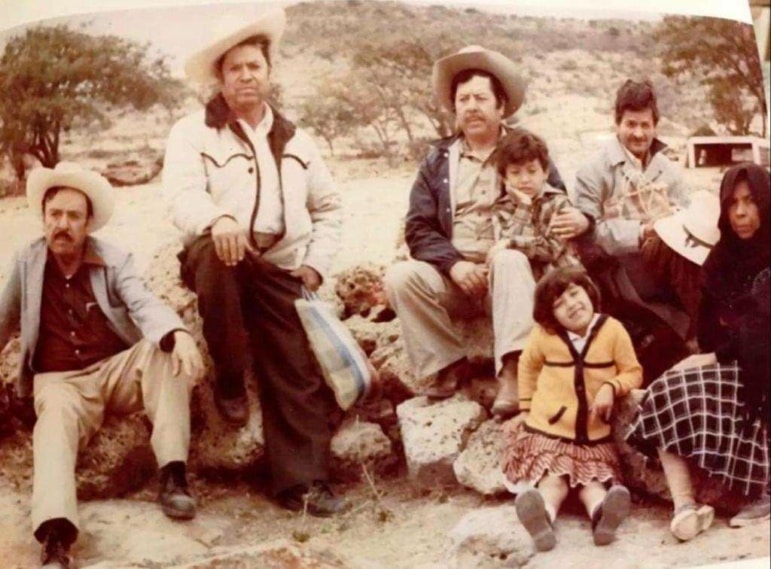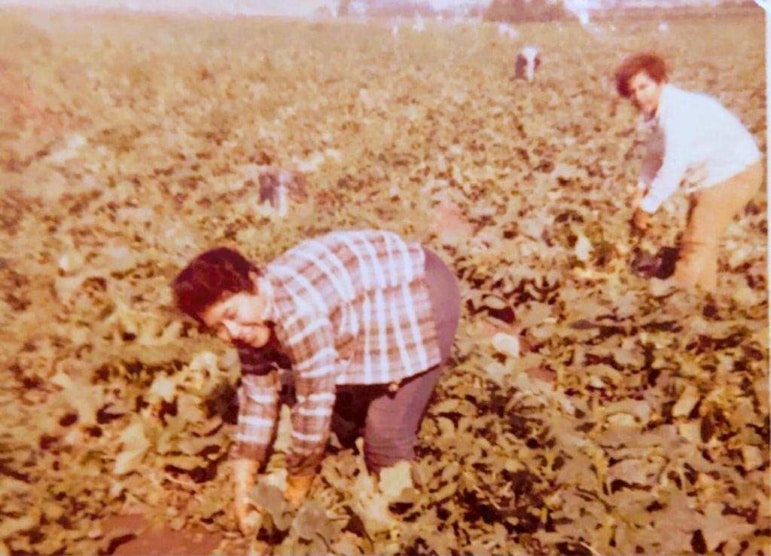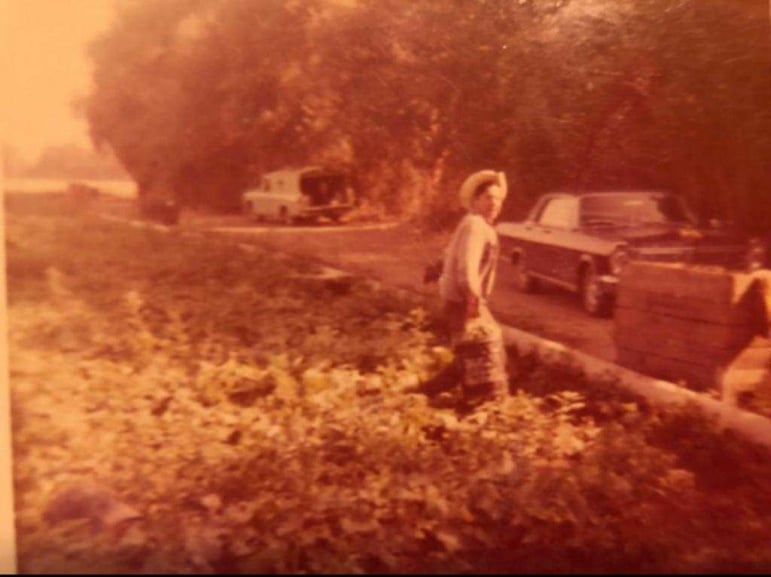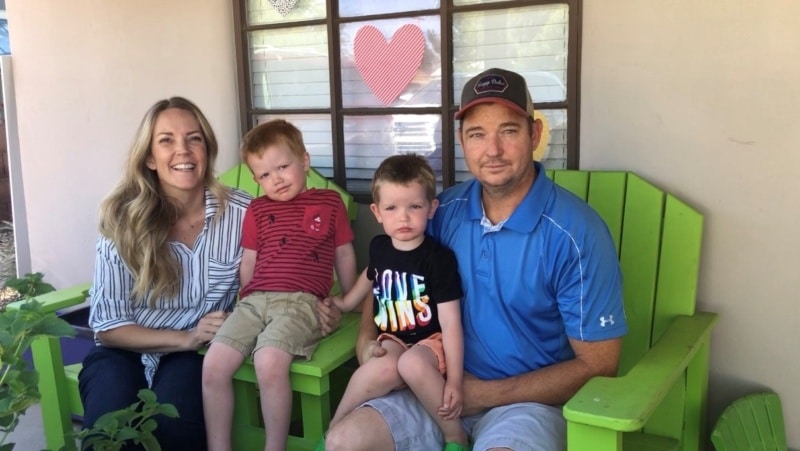
It’s 3 a.m. and Efrain can smell the fresh tortillas. He hears the pitter patter as they go from one hand to the other ready for the comal. Mom is up, prepping food for the workday and for later tonight. As he gets up, he rubs his sleepy eyes and greets his mom in the kitchen with a hug. Both of his parents will be gone today from sunup to sundown working in the fields near San Luis, Arizona.
This was daily life in 1979.
Nowadays, Efrain Trigueras leads the No Borders No Limits Produce Program (NBNL) for the Arizona Food Bank Network as Director of Warehouse Operations. This program rescues truckloads of Mexican produce gathered by hardworking hands; hands much like those of his parents. These fruits and vegetables make it to all our member food banks in Arizona (and often beyond – as far as Indiana!), to the agencies these food banks serve, and into the homes of people who need it most – the one in seven people in Arizona who are food insecure. For Efrain, this is a true calling.
Getting his hands on a tomato right out of the produce box in the Rio Rico warehouse today is a poetic call-back to cleaning tomatoes just like it as a young kid. He remembers well placing tomatoes in boxes to go from the field to the distributor. Honor and legacy, coming full circle.
Efrain credits his work ethic and passion for rescuing food (not to mention helping his neighbors) to his parents – mainly his mom:
“My mom has been a huge factor as to why I do what I do. My mom, since she was very little, worked very hard. For instance, she used to take me to work with her to clean produce field. I can still remember being out in the agricultural furrows (field) with my tools trying to reach the end of the furrow to clean it of weeds and other things, and I just could not do it fast enough. This would set us all back. So, I would look over to see my mom in a rush to finish her aisle so she could come help me reach the end of the furrow assigned to me. She always had to work extra. My mom taught me to work hard, and to help people at the same time. She was a remarkable woman. These values are still with me, and to this day are what drive my work and my life in general.”

A family of farmers from Zacatecas and Sonora, Mexico, Efrain and his parents (as well as cousins) used to take the produce picking routes also known as “La Corrida” north of the border and up to Soledad, California. The entire family, Grandpa included, would jump into their truck. The starting point was Yuma, Arizona. Then it is was up to California, moving from farm to farm as soon as one job was done. One of Efrain’s favorite memories is when Grandpa grew tired of driving and climbed in the back of the camper with the kids. He would pull out his guitar, and everyone sang together the rest of the way.
Growing up the son of immigrants meant Efrain didn’t always have store bought toys, but grandpa came to the rescue for that, too. “During that time… he would pick the pumpkin vines, which are hollow in the middle, and would cut them to the length of a straw, clean them out very well and would hand us a cup with a little bit of soap and we would blow bubbles,” Efrain remembers.
Even though the whole family worked hard, there was no shortage of fun. This is clear with Efrain and the NBNL team. Often, the NBNL team gathers for a cookout for lunch – no special occasion necessary – sometimes inviting produce donors and other valued community members to join the fun.
You might think that growing up in a family that worked so hard and had very little might weigh on him, but when Efrain looks back at where he came from, he doesn’t see what was lacking. Regardless of the struggle, he remembers most that there was always something to strive for – opportunity.

His family had each other, and as long as there was enough food to gather around, that was everything.
“Food was always how we felt loved. My mom taught me how to cook and would always prep things for me to cook for when they would come home,” says Efrain. “My mom had the biggest heart, and I see that in me too.”
So do we, Efrain – so do we.

